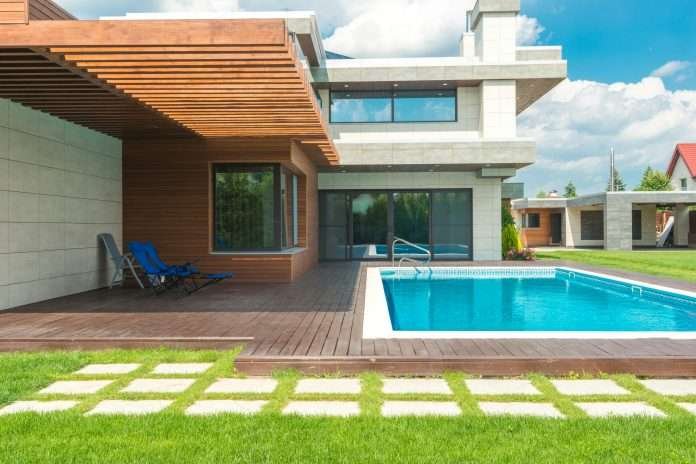Introduction to Fenestration and Its Importance
Fenestration refers to the design and placement of openings in a building, primarily windows and doors, which play a pivotal role in the overall energy-efficiency of a home. Within the context of UK homeowners, understanding the significance of fenestration is essential, not only for aesthetic purposes but also for functional benefits. Windows serve as critical barriers against external elements, and their quality significantly impacts indoor comfort, energy consumption, and even property value.
In the UK, a diverse range of window types can be found in residential properties, reflecting both historical and contemporary architectural styles. Traditional timber frames are prevalent in period homes, providing charm but often lacking in energy-efficiency. Conversely, modern materials like UPVC and aluminium are gaining popularity due to their superior insulation properties and lower maintenance requirements. Among these options, double glazing has emerged as a standard choice for its remarkable ability to reduce heat loss and eliminate draughts, fostering a more comfortable living environment while significantly lowering energy costs.
The importance of upgrading windows cannot be overstated. Outdated or inferior quality windows can account for a considerable percentage of heat loss, leading to increased energy consumption and higher utility bills. By choosing to replace old windows with new, energy-efficient alternatives, homeowners can not only enhance the aesthetic appeal of their properties but also markedly improve their overall functionality. This action not only contributes positively to personal comfort but also aligns with broader environmental objectives by reducing carbon footprints.
As the discussion progresses, the implications of fenestration and the critical role played by double glazing installers in the replacement process will be explored further. Investing in quality windows is an investment in the future of homes across the UK, ensuring enduring value and sustainability.
Understanding the Energy Efficiency of Modern Windows
The energy efficiency of windows has improved significantly over the years, making modern replacements an essential consideration for UK homeowners. Old windows often suffer from draughts and heat loss, reducing energy efficiency and increasing heating costs. On the other hand, modern windows are designed using advanced technologies and materials aimed at minimizing these issues. The integration of low-emissivity (Low-E) glass helps to reflect heat back into the home during winter while simultaneously keeping it out during summer. This dual functionality contributes substantially to maintaining a comfortable indoor environment throughout the year.
Furthermore, modern window frames made from materials such as aluminium, timber, and UPVC are engineered to enhance insulation. Aluminium frames, while strong and long-lasting, now often feature thermal breaks that mitigate heat conduction. Timber, known for its natural insulating properties, offers an aesthetically pleasing option that can blend seamlessly with traditional UK architecture. On the other hand, UPVC is widely praised for being an excellent insulator, resistant to moisture and decay, making it a favored choice among double glazing installers across the UK.
Replacing old, inefficient windows with energy-efficient alternatives ensures dramatic improvements in insulation. Homeowners can expect lower energy bills due to reduced heating and cooling demands. Additionally, by minimizing heat loss and draughts, these energy-efficient windows create a more consistent indoor temperature, thereby enhancing overall comfort. In light of these factors, the benefits of upgrading to modern windows extend beyond immediate financial savings; they also contribute to long-term environmental sustainability. As energy efficiency becomes increasingly important in the context of climate change, making informed choices about window replacements is crucial for British homeowners.
The Double vs. Triple Glazing Debate
When considering window upgrades, homeowners often face the choice between double and triple glazing. Understanding the differences between these two options is crucial, especially for those seeking to enhance energy-efficiency in their homes. Both glazing types are designed to improve insulation and mitigate heat loss, which is particularly relevant for UK residents dealing with variable weather conditions.
Double glazing consists of two panes of glass separated by a spacer filled with either air or argon gas. This design minimizes heat transfer, helping maintain a consistent indoor temperature and reducing energy costs. It effectively reduces draughts and is a popular choice among double glazing installers. In contrast, triple glazing includes three panes of glass, providing an additional layer of insulation. This extra pane can result in superior energy-efficiency, as it further lessens heat loss and enhances the overall thermal properties of the window.
In terms of noise reduction, both double and triple glazing perform admirably. However, triple glazing, with its additional glass pane, tends to offer superior sound insulation, making it an ideal choice for homeowners living in bustling urban areas in the UK. It can significantly contribute to a quieter indoor environment, adding to overall comfort.
It is essential to consider the materials used in glazing. Options such as uPVC, aluminium, and timber all offer different advantages in terms of aesthetics, durability, and thermal performance. Homeowners should evaluate their specific needs, budget, and existing architecture before making a decision. Ultimately, selecting between double and triple glazing will depend on individual priorities, including maximizing energy-efficiency and comfort while considering long-term investment in their property.
Material Matters: Wooden, Aluminium, and uPVC Windows Explained
When considering window replacement, the material of the window frames plays a crucial role in overall performance, aesthetics, and maintenance. In the UK, homeowners have three primary options: wooden, aluminium, and uPVC windows. Each material comes with distinct advantages and drawbacks, which can significantly influence energy efficiency and long-term value.
Wooden windows exude a classic charm, suitable for traditional British homes or those seeking a more aesthetic appeal. They offer excellent insulation, helping to minimize heat loss. However, maintaining wooden frames requires regular upkeep, such as painting and sealing, to protect against moisture and draught. Without proper maintenance, wood can deteriorate, leading to expensive replacements. Despite the maintenance demands, the natural beauty and warmth of wooden frames can enhance a home’s overall appeal.
In contrast, aluminium windows are known for their strength and durability. They require little maintenance compared to wooden windows and can withstand harsh weather conditions. Aluminium frames are resistant to warping, making them an excellent choice for contemporary architecture. However, they are less effective than wood at insulating heat, which may lead to increased energy costs if not paired with adequate thermal breaks. Yet, advancements such as double glazing can significantly improve their energy efficiency.
uPVC windows have gained immense popularity in the UK due to their low maintenance and excellent thermal performance. As a synthetic material, uPVC is resistant to rot, corrosion, and fading, making it a practical choice for various climates. Double glazing with uPVC frames can drastically reduce heat loss and draught, contributing positively to a homeowner’s energy efficiency goals. The availability of diverse styles also allows uPVC windows to blend with various architectural designs.
Ultimately, the best choice of window material depends on the homeowner’s individual preferences, needs, and the specific requirements of their property. Each option has unique benefits that can improve energy efficiency and enhance the home’s overall aesthetic appeal.
The Importance of Professional Installation
When it comes to upgrading windows, the importance of professional installation cannot be overstated. While the idea of a DIY project may seem appealing and cost-effective, the complexities involved in window replacement can lead to numerous pitfalls. Accurate measurements are crucial, as improper sizing can result in gaps that allow draughts and contribute to considerable heat loss. In the UK, where weather conditions can be unpredictable, the need for energy-efficient solutions is paramount. By relying on experienced double glazing installers, homeowners ensure that their new windows—whether they are made of aluminium, timber, or uPVC—are fitted correctly, thereby maximizing thermal performance.
A professional installation guarantees that your upgraded windows meet the highest standards of craftsmanship. Experts are trained to handle various types of materials and understand the specific requirements of British homes, including compliance with local regulations. Missteps in installation can lead to more than just aesthetic issues; they may compromise the frame’s structural integrity and efficiency, undermining the energy-efficiency benefits that double glazing is meant to deliver.
Moreover, professional installers often provide warranties that safeguard your investment. They stand behind their work, ensuring that if any issues arise post-installation—be it leaks or operational faults—there are avenues for rectification without additional costs. Many homeowners in the UK overlook these long-term benefits of hiring professionals, prioritizing immediate savings over high-quality installations. By choosing to invest in professional services, homeowners benefit from enhanced performance, aesthetic appeal, and peace of mind regarding the longevity of their window systems.
The ultimate goal of replacing old windows is to improve the overall energy efficiency of a home. Ensuring this process is carried out by skilled professionals ensures that homeowners reap the full benefits of their investment while avoiding costly mistakes typical of DIY attempts.
Aesthetics and Market Value: Enhancing Your Home’s Curb Appeal
When considering home improvements, one of the most impactful upgrades that homeowners in the UK can make is the replacement of old windows. Energy-efficient double glazing is not only crucial for reducing heat loss and improving thermal performance, but it also plays a significant role in enhancing the overall aesthetic appeal of a property. The visual transformation that new windows provide can effectively increase the home’s curb appeal, making it more inviting and attractive to potential buyers.
Recent trends in window designs emphasize a blend of modern functionality and classic aesthetics, catering to both contemporary tastes and traditional architectural styles. For instance, homeowners can opt for aluminium, timber, or uPVC frames in various colors and finishes that complement London’s iconic architecture. This variety allows for a harmonious integration of new windows with the existing exterior, thereby elevating the property’s visual coherence. Moreover, double glazing options now include a myriad of customizable features, enabling homeowners to tailor their windows to reflect personal style preferences.
Not only do upgraded windows enhance the home’s exterior appearance, but they also contribute positively to its market value. A property equipped with modern, energy-efficient windows is typically more appealing to prospective buyers, who often seek homes that require minimal renovation and boast lower energy bills. By investing in high-quality double glazing and enlisting the help of reputable double glazing installers, UK homeowners can ensure that their investment not only enhances quality of life but also potentially increases the resale value of their homes. Ultimately, replacing old windows is a worthwhile step that marries aesthetic enhancement with financial prudence, benefiting both current enjoyment and future investment returns.
Enhancing Security and Noise Reduction
In today’s rapidly evolving urban landscape in the UK, security and noise are increasingly critical concerns for homeowners. The integration of advanced technologies in contemporary window designs has significantly bolstered home security while concurrently addressing noise reduction. This is particularly pertinent in urban areas where noise pollution can impact the quality of life.
Modern double glazing solutions play a vital role in enhancing the security of a home. Traditional single-pane windows are relatively easy to breach, making homes more vulnerable to break-ins. In contrast, double glazed windows, which typically feature two panes of glass sealed together, are much more difficult to shatter. Furthermore, many contemporary windows are designed with reinforced frames made from materials such as timber, uPVC, and aluminium. These materials not only provide durability but also act as deterrents against potential intruders, thereby improving overall safety for residents.
Noise reduction is another key advantage of upgrading to modern window technologies. The UK is known for its vibrant yet bustling urban environments, which often generate significant external noise. Double glazing minimizes heat loss and draughts while serving as a barrier against outside disturbances. The space between the glass panes acts as an insulator, significantly dulling sound transmission. Homeowners can enjoy a more tranquil indoor atmosphere, effectively transforming their living environments into peaceful sanctuaries away from the chaotic sounds of city life.
Moreover, when working with professional double glazing installers, consumers can select windows tailored to their specific needs. These installers are knowledgeable about various options that can enhance both security and noise reduction, ensuring homeowners benefit from both comfort and safety. This upgrade not only represents an essential investment in property value but also promotes a safer, quieter, and more energy-efficient living space.
The Environmental Impact of Window Replacement
Replacing old windows with modern energy-efficient alternatives is not merely a home improvement decision; it is a significant step towards sustainability and reducing environmental impact. Windows are often a major source of heat loss in homes, leading to increased energy consumption and higher carbon emissions. Traditional single-glazed windows allow a considerable amount of heat to escape, forcing homeowners to rely on central heating systems, which may operate on fossil fuels. By opting for double glazing, which consists of two panes of glass with a gap that reduces heat transfer, homeowners can minimize energy loss and enhance their property’s thermal performance.
The switch to energy-efficient windows also supports various governmental energy-saving initiatives designed to encourage the adoption of sustainable practices across the UK. These initiatives often include financial incentives for homeowners who invest in energy-efficient upgrades, such as grants or tax deductions. By choosing windows made from materials like aluminium, timber, or uPVC, which have insulating properties, homeowners can further decrease their energy consumption and contribute to lower greenhouse gas emissions. The new generation of double glazing not only maximizes insulation but also reduces draughts and enhances comfort within the home.
Furthermore, the production of energy-efficient windows tends to incorporate more sustainable practices and materials. Many double glazing installers prioritize environmentally friendly processes, including the recycling of materials and the reduction of waste during manufacturing. Installing these windows not only bolsters a homeowner’s eco-conscious image but also helps in creating a demand for sustainable practices among manufacturers. In an era where climate change is a pressing concern, taking steps to replace old windows with energy-efficient options should be viewed as a critical responsibility for UK homeowners aiming to contribute positively to the environment.
Conclusion: The Smart Investment for Every Homeowner
In conclusion, the decision to replace old windows is a critical one that every UK homeowner should consider. The benefits of upgrading to energy-efficient windows, such as those featuring double glazing, extend beyond aesthetic improvements. By investing in new windows, homeowners can significantly reduce heat loss, minimize draughts, and ultimately lower heating bills. The latest advancements in window technology, including options made from aluminium, timber, and uPVC, provide a variety of choices tailored to fit individual needs and preferences.
Moreover, opting for energy-efficient, double glazing can enhance the overall comfort of a home. This is particularly important in the variable UK climate, where maintaining a stable indoor temperature is essential. The long-term savings on energy costs, combined with the increased property value due to improved insulation and reduced noise pollution, make new window installation a wise financial decision.
As British homeowners contemplate such an investment, it is crucial to engage with reputable double glazing installers who can guide the selection process and ensure proper installation. This step is vital in maximizing the energy efficiency of new windows and ensuring lasting performance. Homeowners should evaluate their current windows, looking for signs of energy inefficiency such as drafts or condensation. If such issues are present, it may be time to take action.
Ultimately, upgrading windows is not just a matter of compliance with modern standards, but an opportunity to enhance comfort and energy efficiency in the home. Therefore, assessing your current windows and considering a replacement should be a priority for homeowners looking to make a positive impact on both their living environment and their finances.






